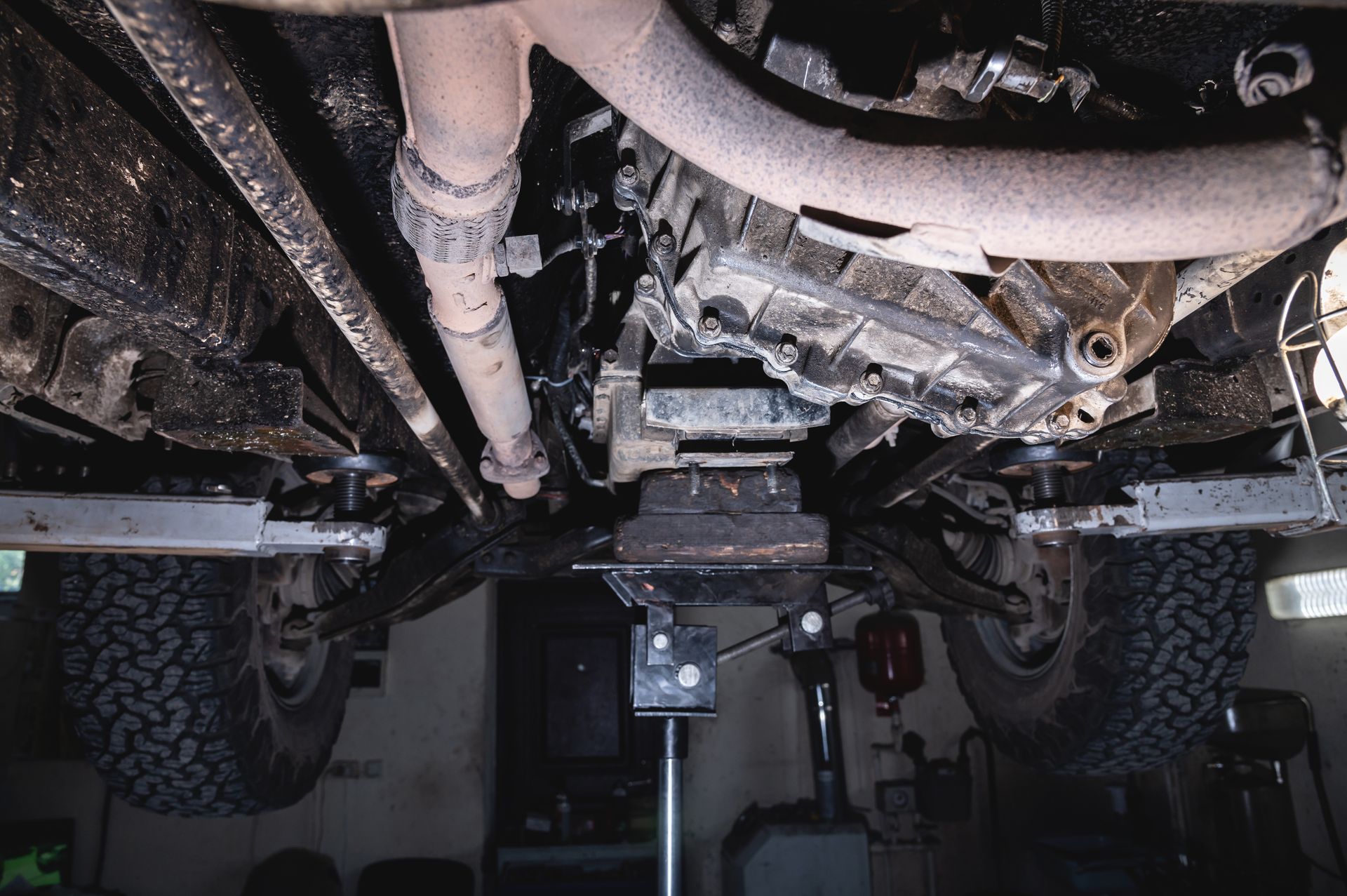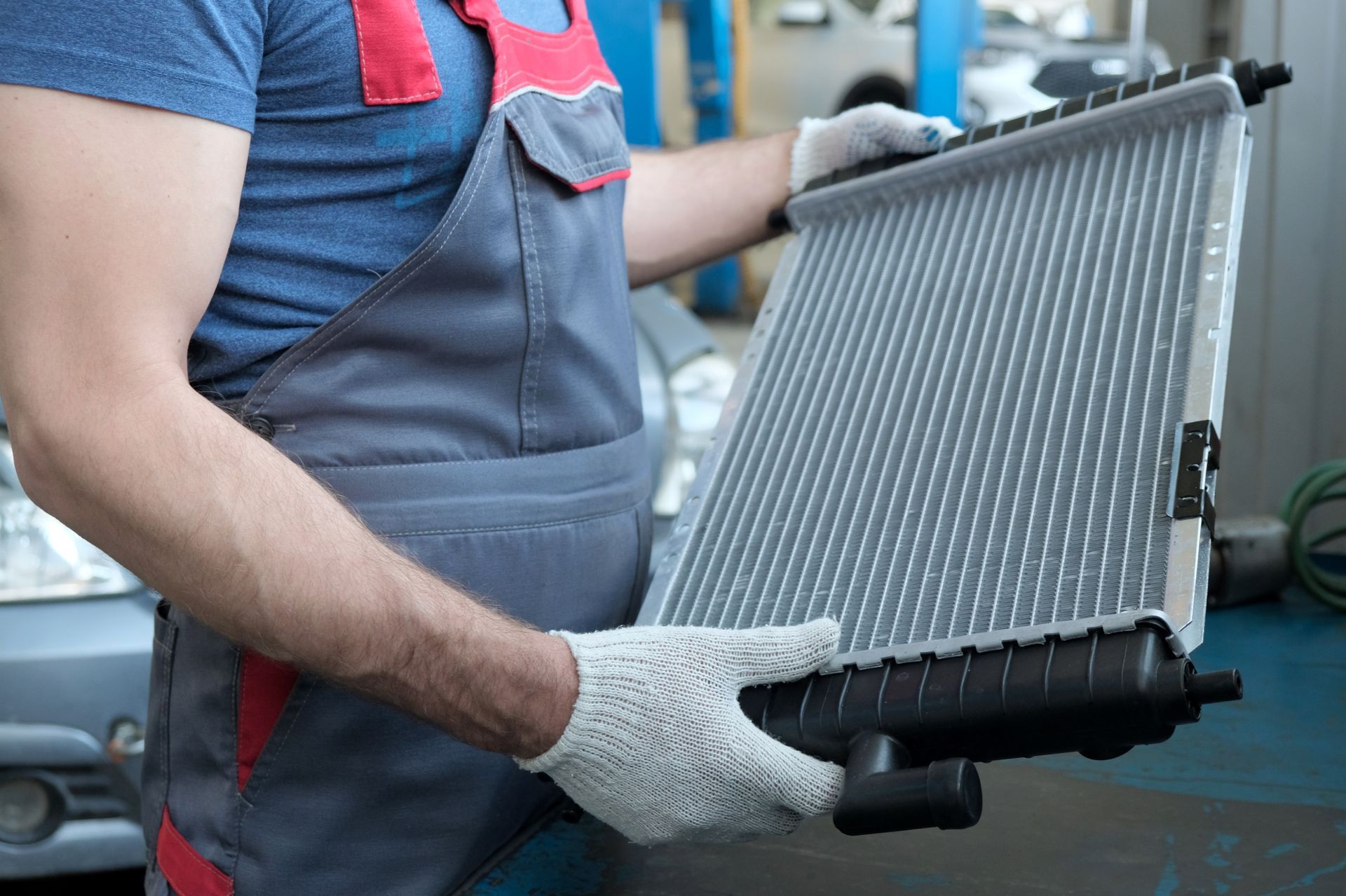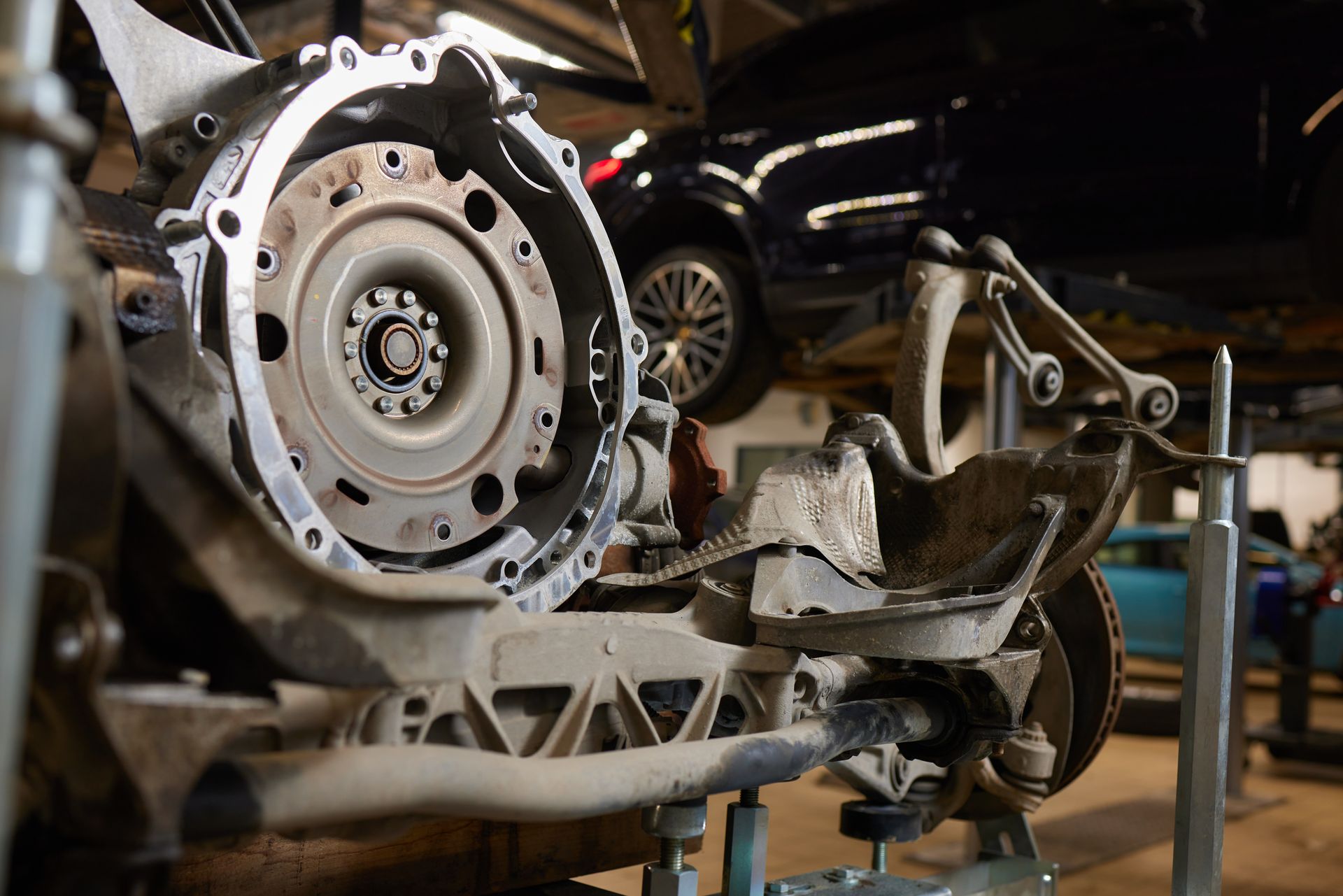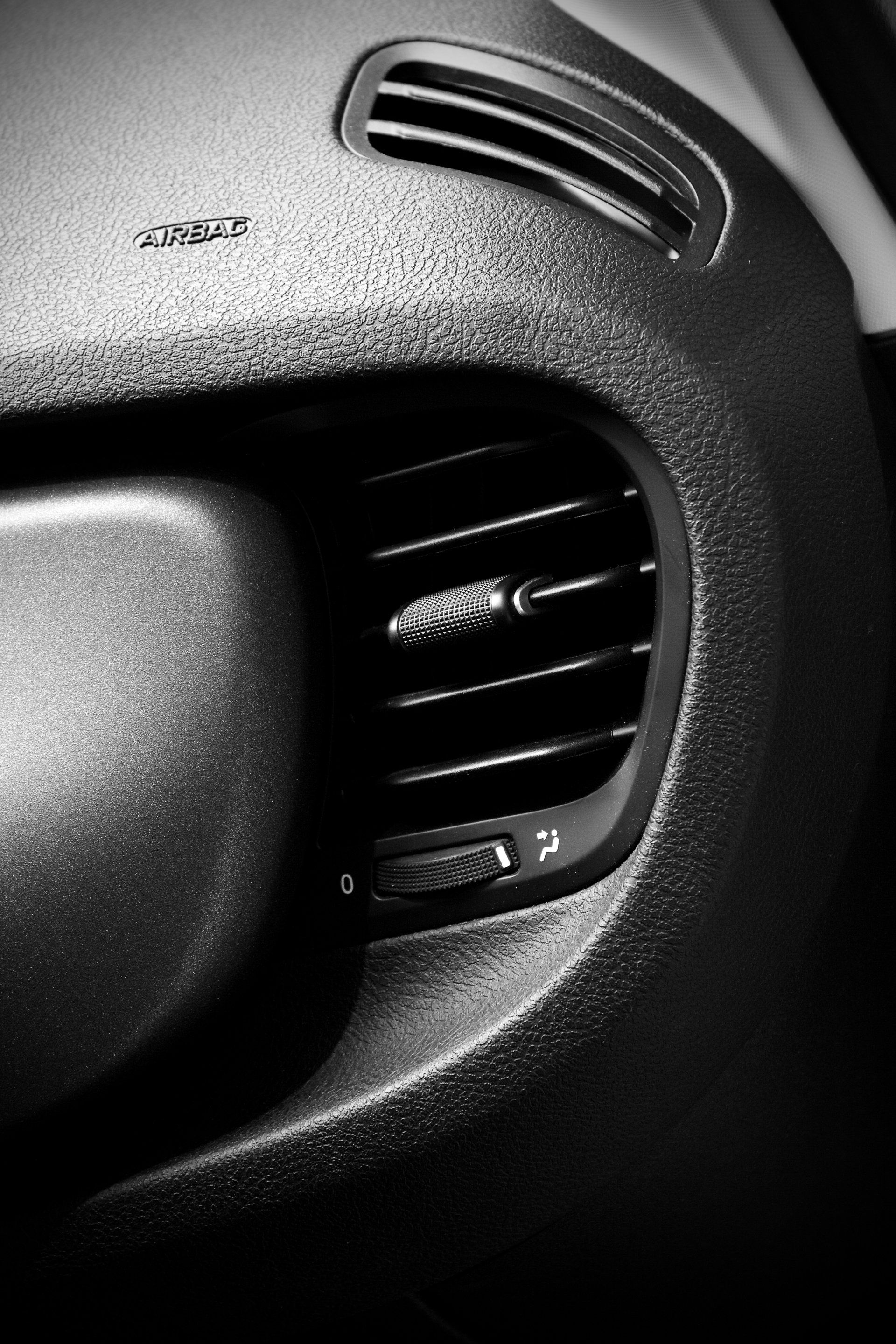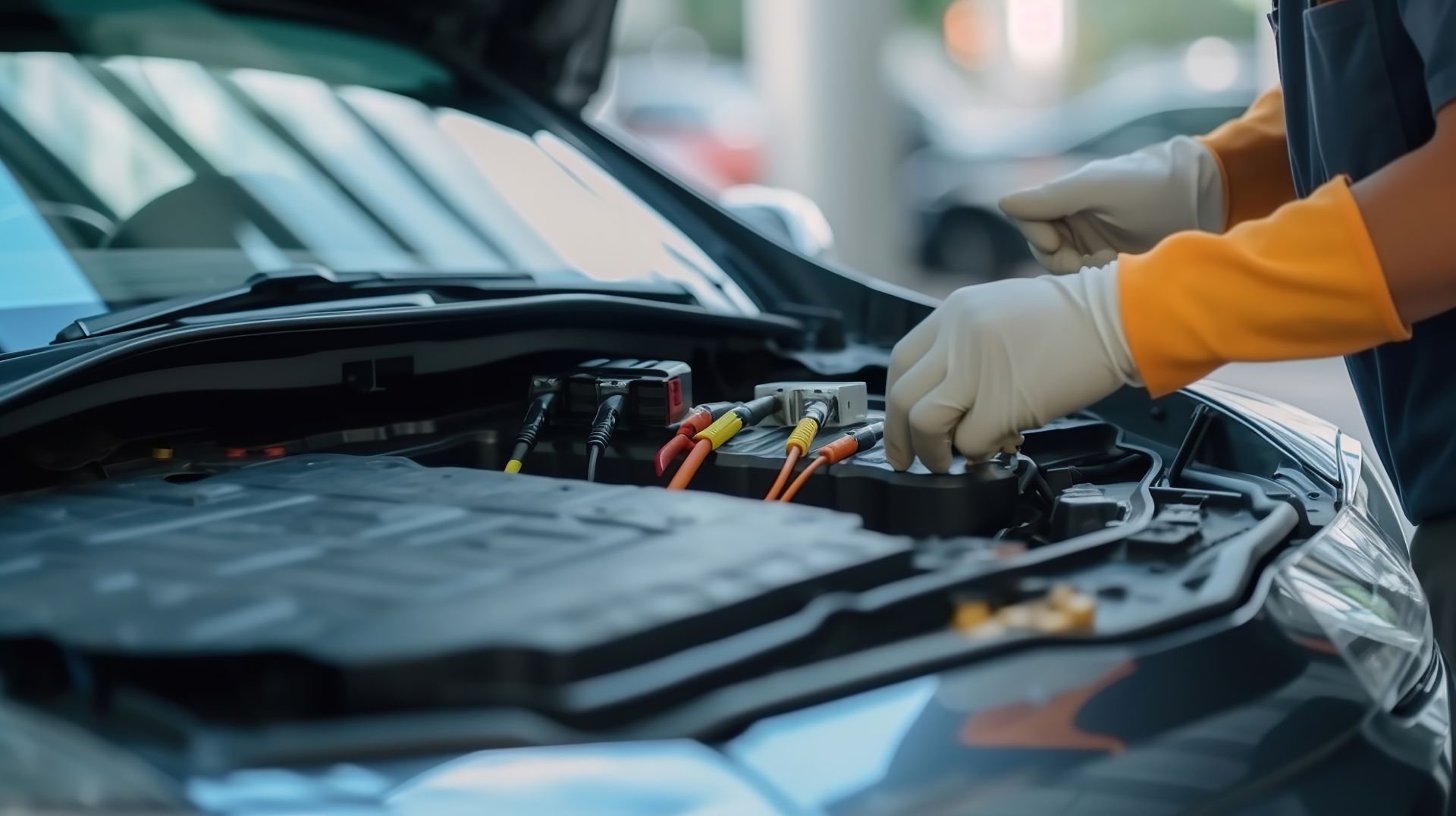How to Prevent Catalytic Converter Theft
Did you know there’s a hidden treasure on your car for thieves? Nope, it’s not your fancy navigation system or radio. In fact, it’s not inside your car at all! It’s actually tucked under your car as part of your exhaust system — your catalytic converter.
Catalytic converters are required for your car to run properly. But, because they’re easy to remove, catalytic converter thefts are on the rise across the nation. So what can you do to avoid yours from being stolen? Follow these tips to prevent your catalytic converter from theft — and what to do if it does occur.
What Is a Catalytic Converter?
A catalytic converter is found underneath your car attached to the exhaust pipe with bolts. It’s a vital element of your car’s exhaust system because they reduce emissions of harmful compounds found in car exhaust. All cars made after 1974 are required to have catalytic converters to convert these pollutants into less harmful compounds before leaving your car’s exhaust system.
Why people steal catalytic converters
Why not the whole car or the stereo? There’s a reason some thieves steal catalytic converters instead of other types of car parts. Here’s why your catalytic converter is a target:
They’re easy to steal. Catalytic convertors can be removed in just a few minutes with a saw or wrench. The thief simply crawls underneath a vehicle and slice the converter free. In most cases, they don’t even need to jack up the car!
They’re highly valuable. Catalytic converters are popular with thieves because they’re valuable as scrap metal. They contain precious metals like rhodium, platinum and palladium used to filter your emissions and reduce vehicle pollution. Catalytic converters can be sold to scrap yards for $150 to $200 per piece, depending on the size of the converter and how many precious metals are in it.
There’s a variety of options to steal from. For example, SUVs are easier to crawl under, which makes them an easier target. Low-emission vehicles are also common targets because they have catalytic converters that contain more precious metals in them.
They’re hard to trace. Unlike the vehicles themselves, catalytic converters don’t carry an identification number, making it nearly impossible to identify them as stolen property.
How to tell if your catalytic converter has been stolen
It can be a relief to see your car in the same spot you parked it last night and seemingly all in one piece. But even if your car looks fine, there could be other clues that your catalytic converter is missing, for instance:
A roaring noise. If your catalytic converter has been removed, your vehicle will make a loud rumbling or roaring sound when you turn on the engine. And it will only get louder when you push on the gas.
A bumpy ride. Since the exhaust isn’t working quite right, your vehicle will drive rougher than usual.
Sputtering sounds. When you accelerate, you’ll hear a sputtering sound as you change speed.
A large hole. If you look under your car and see a gaping space in the middle of your exhaust, you’ll know your converter is missing. Make sure to check under your car before you drive next time to know what to look for if you think it’s missing.
Cut pipes. If you look under your car, you might be able to see signs of the piping being cut away.
Strange smells. Toxic fumes will likely be easy to smell.
How to Prevent Catalytic Converter Theft
Now that you know what a catalytic converter is and why it’s commonly stolen, let’s make sure you know what to do to keep your catalytic converter safe from theft:
Know if you're a target. Call a trustworthy local muffler shop and ask if other cars –– and what types –– have been targeted in your area.
Install an anti-theft device. These can include a steel shield that fits over the catalytic converter, a locking cable device that secures the converter to your car or a cage made of rebar or other high-strength steel that's difficult to cut.
Weld it to the frame. Throw thieves for a loop by making the catalytic converter harder to steal by taking your car to a mechanic to weld the catalytic converter to your car’s frame.
Engrave your VIN on it. Consider engraving your vehicle identification number (VIN) on the catalytic converter, making it easier to identify you as the owner. It could also alert a scrap dealer that it was stolen and they might decline to buy it.
Park in your driveway or a closed garage. Whenever you can, park your car on your own property, where thieves are less likely to venture. And keep all garage doors shut and locked.
Park in well-lit areas. If you can’t park in your own driveway or garage, park in busy, well-lit areas and close to building entrances.
Regularly move your car. Parking in one area for a long period of time, such as a commuter parking lot or leaving your car parked on the street, can give thieves more time to steal your catalytic converter.
Set an alarm or camera to catch thieves. Calibrate your car's alarm to go off when it detects vibration, like when your car is jostled. Or install a motion-sensitive camera that will notify you of any unexpected activity.
Install motion-sensitive lights. Simply adding floodlights that turn on when they detect motion can help deter would-be thieves.
Get to know your neighbors. Having another set of eyes on the lookout will help you recognize anyone who seems out of place and might be casing parked vehicles in your neighborhood.
What to Do if Your Catalytic Converter Is Stolen
You’ve discovered that your catalytic converter was stolen — now what? Here are a few steps you can follow to help get things back in order:
1. Take a breath. Before jumping to worst-case conclusions, take a minute to think things through. Ask yourself: “Am I absolutely positive my catalytic converter has been stolen?” Sometimes these parts fall off. If you’re sure there are no other explanations other than theft, it’s time to call the police.
2. Call the police. Contact the police to file a police report. It might not help recover your catalytic converter, but it will help police track these crimes. An official report will also be necessary for the claim you’ll file with your insurance company.
3. Call your insurance agent. Tell your insurance agent as soon as possible that your catalytic converter has been stolen and that you’ve filed a police report. You may be asked to provide the case number of the report so the agent can follow up.
4. File a car insurance claim. You can do this over the phone with your insurance agent or later online, but you should file a claim as soon as possible. These are the things you’ll need when you file an insurance claim for a stolen catalytic converter:
· The date and time of the event
· A brief description of what happened
· The police report case number
· Any photos of the location of the theft or the damaged exhaust pipe where the catalytic converter used to be
5. Replace the catalytic converter. Contact a trusted mechanic or muffler shop to replace the catalytic converter. Ask if an aftermarket catalytic converter is legal in your state. These can be less desirable to thieves and might help prevent future thefts. Also ask the repair shop about adding an anti-theft device to help prevent this from happening again.
Is Catalytic Converter Theft Covered by Insurance?
Although it’s a small part of your vehicle, a catalytic converter can come with a big price tag. Plus, it’s illegal to drive without one, so you might rack up hefty fines if you don’t take care of it right away.
Fortunately, comprehensive car insurance coverage can help pay for the cost of replacing a catalytic converter. As long as your deductible is lower than the cost to replace it, your insurance can help cover the expense.
Remember — a liability-only policy won’t cover any type of theft or vandalism, including theft of your catalytic converter. Comprehensive coverage is often inexpensive to add to your policy and covers you for things like theft, vandalism, damage caused by animals and more. So talk to your agent about what protection you have and if adding comprehensive coverage is right for you.
Insure Your Vehicle’s Catalytic Converter from Theft
Comprehensive car insurance covers damage to your car caused by external events out of your control. While many accidents involve other drivers, there are types of accidents that don’t involve another car that are covered by comprehensive insurance –– including catalytic converter theft. Ready to protect your vehicle?




